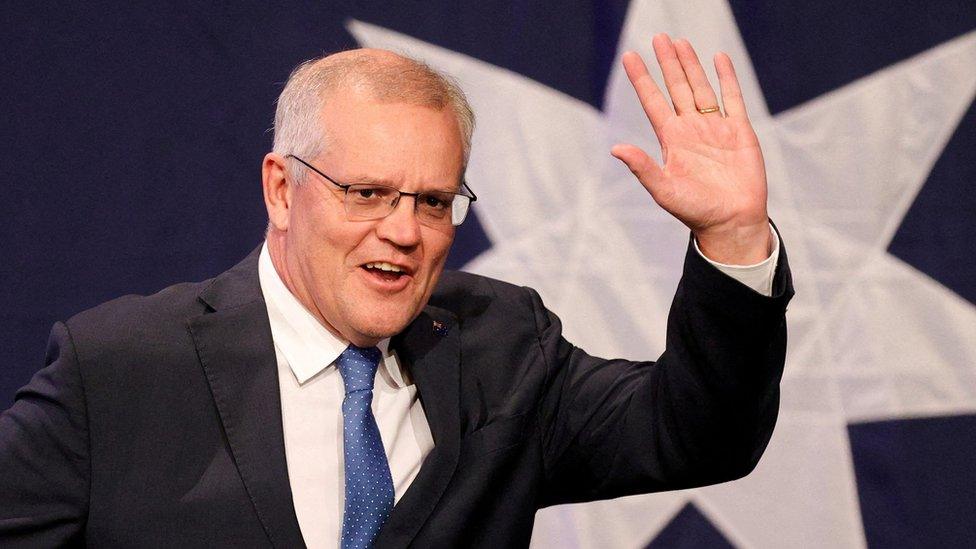Scott Morrison: Former Australian prime minister to quit politics
- Published
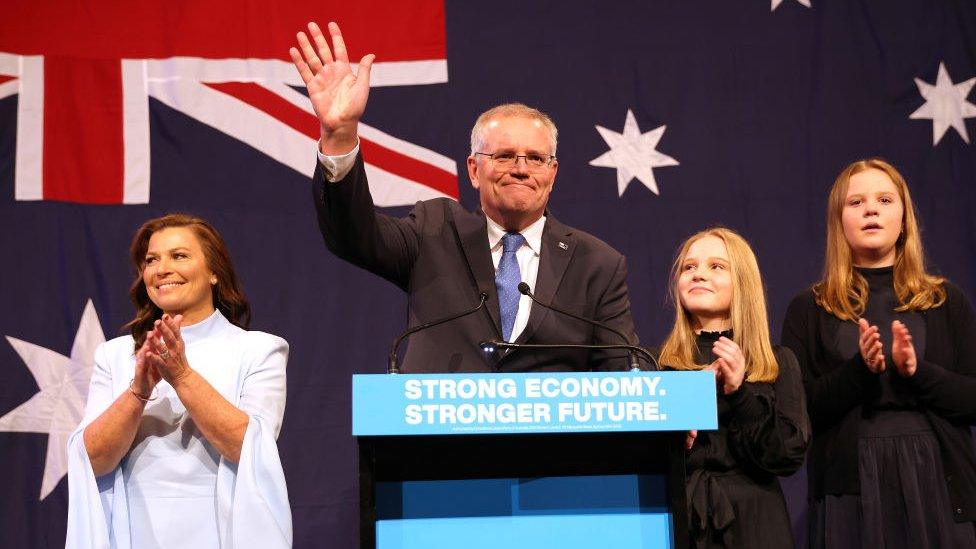
Scott Morrison oversaw Australia's pandemic response
Australia's former Prime Minister Scott Morrison has announced he will quit parliament to join the private sector.
Mr Morrison, a conservative who was first elected in 2007, was the country's leader from 2018 to 2022.
He oversaw Australia's pandemic response, the Aukus defence pact, and was embroiled in a historic scandal for secretly appointing himself to several ministerial positions while PM.
"The time has come for me to return to private life," he said on Tuesday.
In a statement Mr Morrison, 55, said he would now take on "strategic advisory roles" across Asia to focus on security matters in the Indo-Pacific.
A devout Christian, he said he was "looking forward to being more active" in his church and spending time with his family.
Mr Morrison's retirement has long been expected following a shattering election loss to Labor's Anthony Albanese in 2022, which left the Liberal-National coalition with its lowest ever number of seats.
Australia's reputation as a climate laggard was a major factor in his government's demise - with voters favouring candidates committed to more ambitious emissions cuts.
Mr Morrison's initial response to Covid - which included border closures, lockdowns and test and trace protocols - is credited with helping to contain early outbreaks, although a delayed vaccine rollout later drew criticism.
During his time in office, the prime minister had a particularly rocky relationship with China, Australia's largest trading partner.
His government led calls for an international investigation into the origins of Covid, prompting a tit-for-tat trade dispute and a years-long diplomatic freeze.
In a strategic pivot, Mr Morrison instead focused on bolstering regional security alliances, helping to set up the Quad partnership with India, Japan and the US, and signing the Aukus nuclear submarine deal with the UK and US.
But public support for him had begun deteriorating rapidly following his decision to holiday in Hawaii during Australia's deadly 2019-2020 bushfires.
Later, he apologised after being widely criticised for his initial muted response to a string of sexual misconduct allegations which rocked parliament.
After his 2022 election defeat - described by an internal review as the "most serious" loss in coalition history - Mr Morrison returned to the opposition backbench.
He became the first former prime minister to be censured by parliament - over secret powers he had given himself during the pandemic.
Mr Morrison said his decision to make himself the joint minister for health, finance, treasury, and home affairs while leader had been in keeping with the "extraordinary times" the country was facing.
Ultimately, an investigation found his appointments were legal, and that he used his extra powers only once.
Mr Morrison first garnered national attention in 2013 when he was appointed to cabinet as immigration minister and oversaw Operation Sovereign Borders - which hardened Australia's controversial asylum seeker policies.
He then served as social services minister and treasurer, before succeeding Malcolm Turnbull as Liberal Party leader and prime minister.
Mr Morrison famously defied polls to win the 2019 federal election, having pitched himself to voters as an everyday family man the nation could trust, and adopting the nickname "ScoMo".
After a decade of political leadership challenges in both major parties which upended governments, he became the first prime minister to serve a full term since John Howard in 2007.
Related topics
- Published23 January 2024
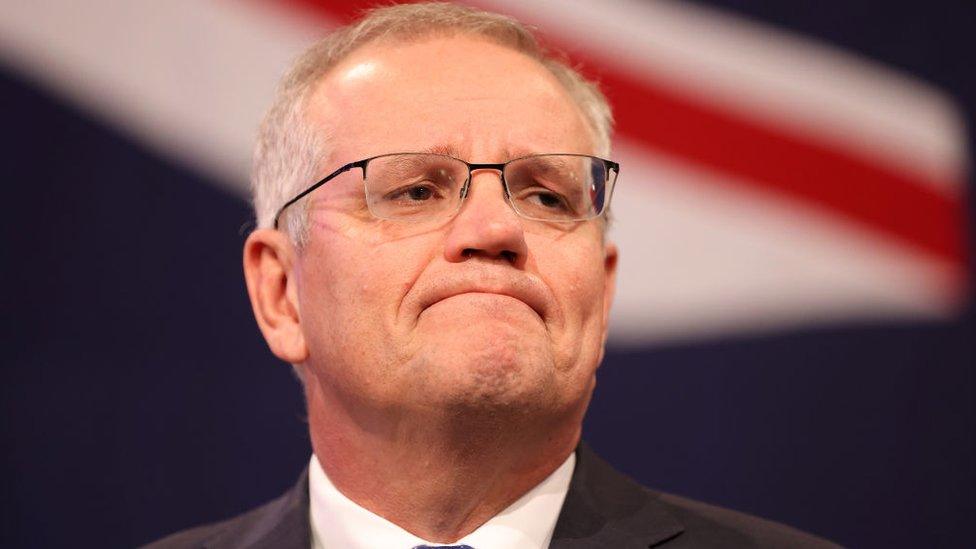
- Published30 November 2022
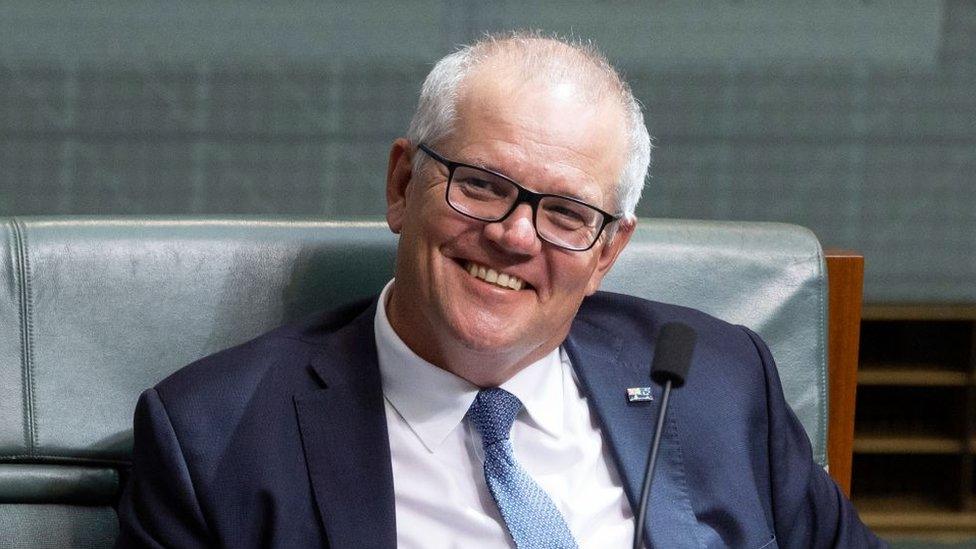
- Published21 May 2022
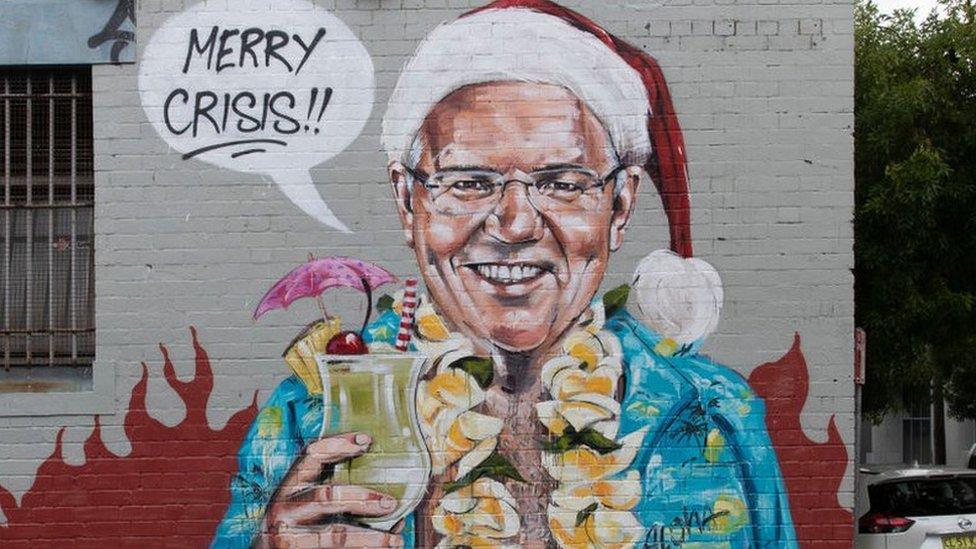
- Published18 August 2022
